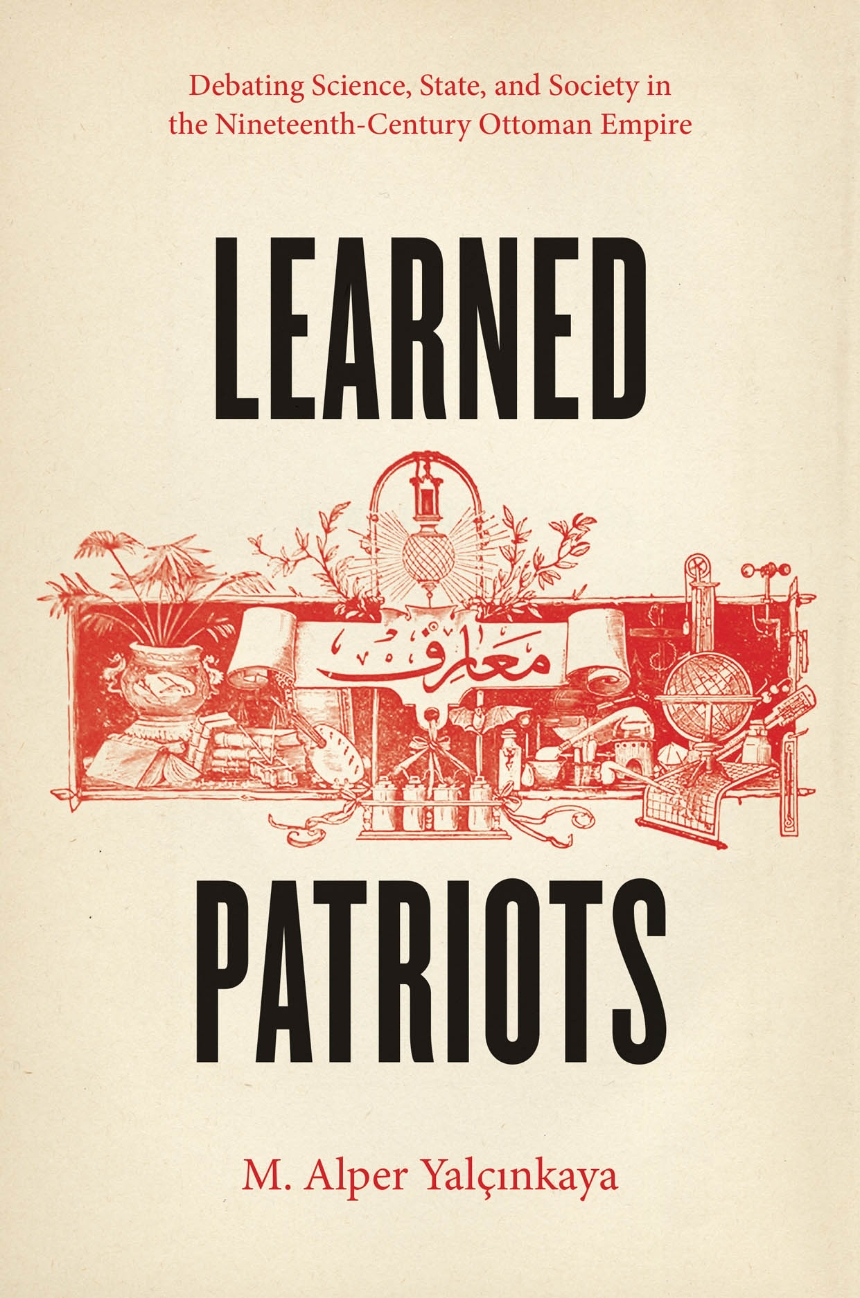Learned Patriots
Debating Science, State, and Society in the Nineteenth-Century Ottoman Empire
9780226184203
9780226184340
Learned Patriots
Debating Science, State, and Society in the Nineteenth-Century Ottoman Empire
The nineteenth century was, for many societies, a period of coming to grips with the growing, and seemingly unstoppable, domination of the world by the “Great Powers” of Europe. The Ottoman Empire was no exception: Ottomans from all walks of life—elite and non-elite, Muslim and non-Muslim—debated the reasons for what they considered to be the Ottoman decline and European ascendance. One of the most popular explanations was deceptively simple: science. If the Ottomans would adopt the new sciences of the Europeans, it was frequently argued, the glory days of the empire could be revived.
In Learned Patriots, M. Alper Yalçinkaya examines what it meant for nineteenth-century Ottoman elites themselves to have a debate about science. Yalçinkaya finds that for anxious nineteenth-century Ottoman politicians, intellectuals, and litterateurs, the chief question was not about the meaning, merits, or dangers of science. Rather, what mattered were the qualities of the new “men of science.” Would young, ambitious men with scientific education be loyal to the state? Were they “proper” members of the community? Science, Yalçinkaya shows, became a topic that could hardly be discussed without reference to identity and morality.
Approaching science in culture, Learned Patriots contributes to the growing literature on how science travels, representations and public perception of science, science and religion, and science and morality. Additionally, it will appeal to students of the intellectual history of the Middle East and Turkish politics.
In Learned Patriots, M. Alper Yalçinkaya examines what it meant for nineteenth-century Ottoman elites themselves to have a debate about science. Yalçinkaya finds that for anxious nineteenth-century Ottoman politicians, intellectuals, and litterateurs, the chief question was not about the meaning, merits, or dangers of science. Rather, what mattered were the qualities of the new “men of science.” Would young, ambitious men with scientific education be loyal to the state? Were they “proper” members of the community? Science, Yalçinkaya shows, became a topic that could hardly be discussed without reference to identity and morality.
Approaching science in culture, Learned Patriots contributes to the growing literature on how science travels, representations and public perception of science, science and religion, and science and morality. Additionally, it will appeal to students of the intellectual history of the Middle East and Turkish politics.
Reviews
Table of Contents
Introduction
1 A New Type of Knowledge for a New Social Group
2 Speakers, Institutions, Discourses of Science in a New Regime
3 Consolidation of the Discourse: Science, State, and Virtue in the 1860s
4 Expansion and Challenge: Young Ottomans, New Alternatives
5 Debating Science in the Late Tanzimat Era: Themes and Positions
6 Inventing the “Confused Youth”: Science, Community, and Morality in the 1880s
7 Science and Morality at the End of the Nineteenth Century
Conclusion
Acknowledgments
Notes
Bibliography
Index
1 A New Type of Knowledge for a New Social Group
2 Speakers, Institutions, Discourses of Science in a New Regime
3 Consolidation of the Discourse: Science, State, and Virtue in the 1860s
4 Expansion and Challenge: Young Ottomans, New Alternatives
5 Debating Science in the Late Tanzimat Era: Themes and Positions
6 Inventing the “Confused Youth”: Science, Community, and Morality in the 1880s
7 Science and Morality at the End of the Nineteenth Century
Conclusion
Acknowledgments
Notes
Bibliography
Index
